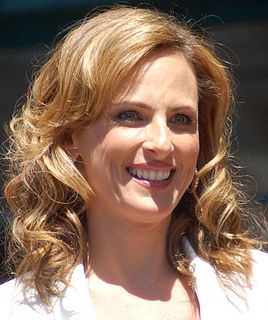A Quote by David Wong
We can cooperate more easily with those who more easily intelligible to us, who are more familiar to us. But the advantages of specialization of labor often push us in the direction working with people who have different strengths and viewpoints than we do. I think that this is one major reason why moralities are always subject to change, because some of the people we cooperate with are going to be different from us in ways that often lead them to have different value orientations than we have; and interacting with them can change us.
Related Quotes
All photographs are there to remind us of what we forget. In this - as in other ways - they are the opposite of paintings. Paintings record what the painter remembers. Because each one of us forgets different things, a photo more than a painting may change its meaning according to who is looking at it.
Anytime we think the problem is 'out there,' that thought is the problem. We empower what's out there to control us. The change paradigm is 'outside-in' - what's out there has to change before we can change. The proactive approach is to change from the 'inside-out': to be different, and by being different, to effect positive change in what's out there - I can be more resourceful, I can be more diligent, I can be more creative, I can be more cooperative.
That's why we have appellate judges that are more than one judge because each of us, from our life experiences, will more easily see different perspectives argued by parties. But judges do consider all of the arguments of litigants. I have. Most of my opinions, if not all of them, explain to parties by the law requires what it does.
Morality is essentially a suite of psychological mechanisms that enable us to cooperate. But, biologically at least, we only evolved to cooperate in a tribal way. Individuals who were more cooperative with those around them - could outcompete others who were not. However, we have the capacity to take a step back from this and ask what a more global morality would look like. Why are the lives of people on the other side of the world worth any less than those in my immediate community? Going through that reasoning process can allow our moral thinking to do something it never evolved to.
Consequential strangers help us stretch beyond the relatively rigid boxes that the people who have known us the longest - our family and close friends - often put us into. Through interacting with people who do not know us as well, we are more free to experiment with ourselves, and less likely to have our new behaviors and roles reflected back to us by people who object, 'But that's not like you!'
Life hands us a lot of hard choices, and other people can help us more than we might realize. We often think we should make important decisions using just our own internal resources. What are the pros and cons? What does my gut tell me? But often we have friends and family who know us in ways we don't know ourselves.
As time went on, we learned to arm ourselves in our different ways. Some of us with real guns, some of us with more ephemeral weapons, an idea or improbable plan or some sort of formulation about how best to move through the world. An idea that will let us be. Protect us and keep us safe. But a weapon nonetheless.
Sometimes people go off in a slightly different direction of wanting to be different, of wanting to be special, of wanting to be more, and I think that those people are often - not always, but often - genuinely different in some way. Perhaps their gender orientation is not acceptable or popular, not the norm. Or, their physical design is literally, in some way, setting them apart. Or, in many cases, they feel the burden of their ordinariness so dreadfully that they strive to find some way of being unique. I think that can be a very positive thing, but it also can be negative, destructive.
Identity is becoming more dependent on what people are willing subscribe to and less dependent on objective criteria such as skin colour or where they're born. Ways of identifying blackness are no longer black or white. It's not a case of us or them, you can now be us and them; like them but different.





































